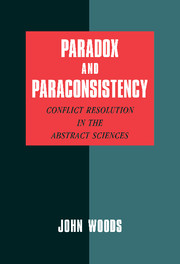2 - Modalities
Published online by Cambridge University Press: 05 June 2012
Summary
[T]he bold bridgeheads seized by intuition must be secured, by thorough scouring for hostile bands that might surround … and destroy them.
Morris Kline, Mathematics: The Loss of Certainty, 1980As widely understood, a modal logic is one whose logical particles include sentential operators that in their well-formed use inhibit the generality of substitution procedures. Among these we find the alethic modals, “necessarily” and “possibly,” the deontic modals, “it is permissible that,” and “it is obligatory that,” the epistemic modals, “it is known that,” and “it is believed that,” the causal modals “because,” and “it is causally sufficient that,” and the temporal modals, “at t,” “before t”; and so on. Modal systems are intensional. It is largely a matter of etymological advertence that a full-blown equivalence between the two has not taken root in our taxonomic practice, no doubt a reflection of the fact that not every category of syntactic element that makes a system intensional is, in the schoolboy's grammar of such things, a modal term. Still, there is nothing against the equation for those who find themselves drawn to it. In this more broadly conceived sense, a modal logic is one that sanctions any constraint that precludes full-bore extensionality. Seen in this broader way, modal logics include those made intensional by the English modals they embed, those made intensional by constraints required for relevance, and those made intensional by their recognition of semantic relations among elementary sentences.
- Type
- Chapter
- Information
- Paradox and ParaconsistencyConflict Resolution in the Abstract Sciences, pp. 40 - 79Publisher: Cambridge University PressPrint publication year: 2002



